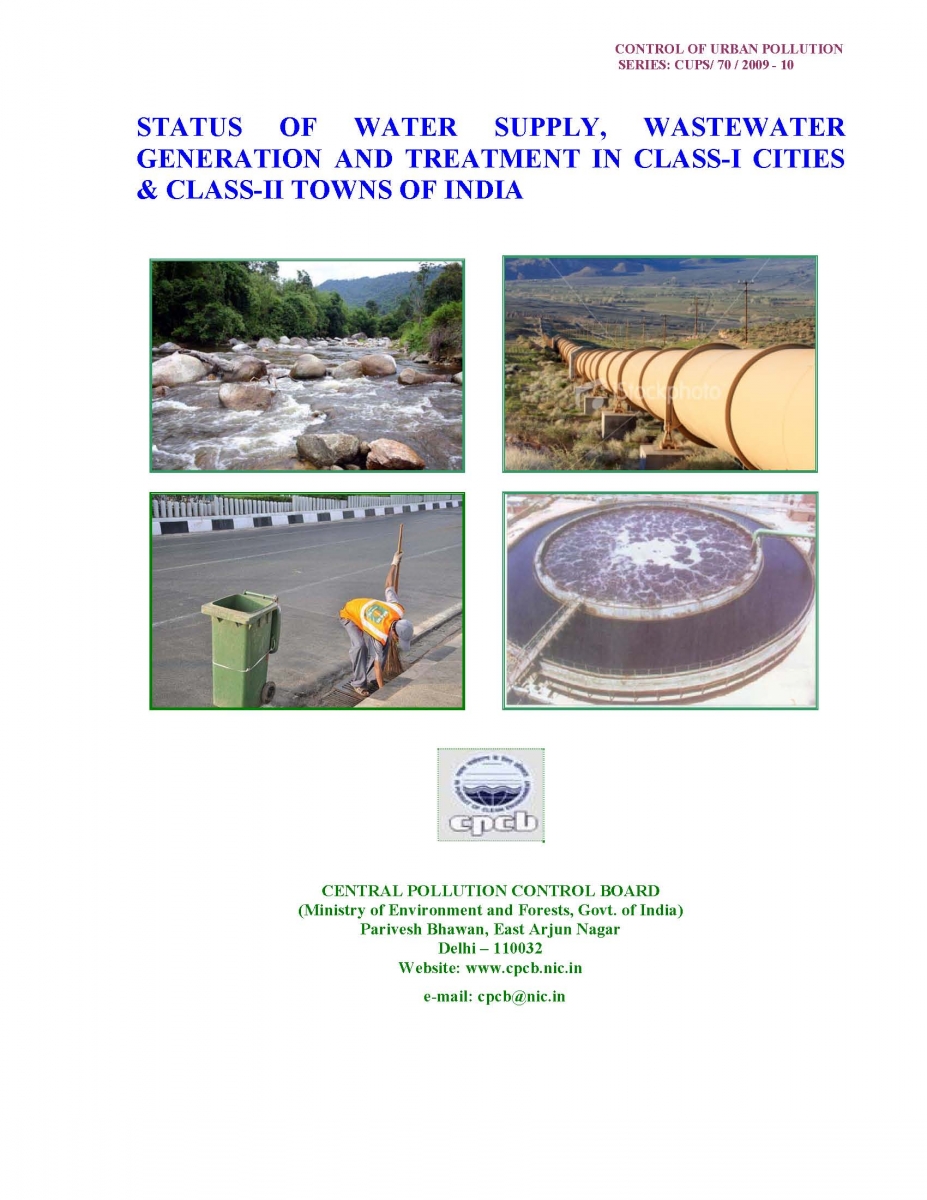 This is the fourth in a decadal series of reports published by the Central Pollution Control Board (CPCB), previous ones published in 1978-79, 1989-90 and 2000, which provides basic information about the status of water supply and sewage generation and treatment of 498 Class-I cities and 410 Class-II towns, along with information on 53 coastal Class-I cities and 35 coastal Class-I towns, besides Ganga Basin as a separate subsection.
This is the fourth in a decadal series of reports published by the Central Pollution Control Board (CPCB), previous ones published in 1978-79, 1989-90 and 2000, which provides basic information about the status of water supply and sewage generation and treatment of 498 Class-I cities and 410 Class-II towns, along with information on 53 coastal Class-I cities and 35 coastal Class-I towns, besides Ganga Basin as a separate subsection.
An important finding of the report is that the total sewage generation from Class-I cities and Class-II towns together in India today, is about 38.254 MLD, out of which only 11.787 MLD (35%) is treated, with a capacity gap of 26,467 MLD (65%). This sewage composed of domestic wastewater and/or industrial discharge, is a major source of water pollution in India, particularly in and around large urban centres. This is because, the sewage is largely let out untreated and it either sinks into the ground as a potential pollutant of ground water or is discharged into the natural drainage system causing pollution of rivers/streams in downstream areas. The report also reveals that while about 78% of the urban population have access to safe drinking water, only about about 38% of the urban population have access to sanitation services.
With increasing urbanisation and demand for drinking water, and hence increased wastewater generation (about 80% of water supplied for domestic use comes out as wastewater) - collection, treatment and safe disposal of wastewater without polluting existing freshwater supplies, is the most important challenge that is facing urban government bodies. This is apart from ensuring the basic human services - safe drinking water and sanitation to all its citizens.
In conclusion, the report warns that the cumulative results of unmanaged wastewater can have broad degenerative long-term effects on both public and ecosystem health, calls for urgent action on this front and makes important recommendations that can help ameliorate the situation.